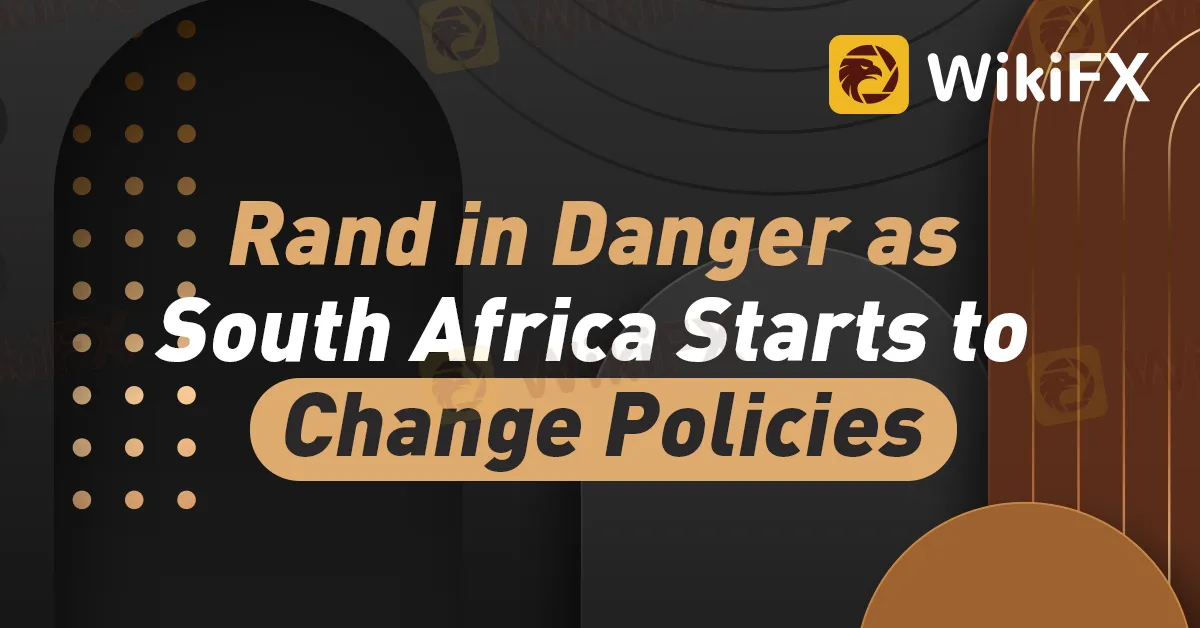LMAX GROUP Review 2026: Regulation, Risks, and Trader Complaints Explained
LMAX GROUP review: FCA regulation, WikiFX score 7.51/10, trader complaints, risks, and broker comparison. Is LMAX GROUP safe for traders?
简体中文
繁體中文
English
Pусский
日本語
ภาษาไทย
Tiếng Việt
Bahasa Indonesia
Español
हिन्दी
Filippiiniläinen
Français
Deutsch
Português
Türkçe
한국어
العربية
Abstract:The rand may become more volatile if the South African central bank changes how its monetary policy is carried out.

The rand may become more volatile if the South African central bank changes how its monetary policy is carried out.
Beginning on Wednesday night, the central bank will switch from its present deficit setup to a surplus one, allowing commercial banks to keep and earn interest on excess reserves. Similar to the “layered floor” system utilized by the Reserve Bank of New Zealand and the Norges Bank, the South African Reserve Bank will likewise implement measures to discourage banks from hoarding liquidity and so assist in maintaining an interbank money market.
The adjustment won't have an impact on the central bank's inflation objective or interest rate choices, but it may make it simpler to speculate in the rand, leading to greater price swings under pressure. Since the epidemic, the cost of shorting the South African rand has increased due to elevated ZAR-USD basis-swap rates.
The currency basis would decrease, making it more affordable to short the rand, said Michelle Wohlberg, a fixed-income analyst at Rand Merchant Bank located in Johannesburg. “Risk-off periods may become volatile as a result of this.”
The rand has been less volatile this year than a number of its peers, such as the lira, zloty, and real, despite pressure on risk assets brought on by fears about a slowdown in China, increasing global inflation, tighter policy, and Russia's conflict with Ukraine. The currency's historical correlation to the dollar has increased by 63 basis points to 14.66 percent, making it the fifth most volatile of the 23 developing-nation currencies tracked by Bloomberg.
The Reserve Bank stated that mitigating the risk would need “care and monitoring,” both during the transition to the new framework and in times of extreme market pressure, in a report that addressed worries about volatility. The first developing market economy to use the tiered-floor framework is South Africa.
It stated that the risk was considered to be “moderate” and did not pose a significant challenge to the idea of the new framework for implementing monetary policy. In contrast to mature nations that have floor-style systems, South Africa may experience the exchange rate differently due to its status as an emerging market.
According to the study, the central bank “has a lengthy track record of tolerating FX volatility” and inflation expectations are anchored, making them less vulnerable to exchange rate changes.

Disclaimer:
The views in this article only represent the author's personal views, and do not constitute investment advice on this platform. This platform does not guarantee the accuracy, completeness and timeliness of the information in the article, and will not be liable for any loss caused by the use of or reliance on the information in the article.

LMAX GROUP review: FCA regulation, WikiFX score 7.51/10, trader complaints, risks, and broker comparison. Is LMAX GROUP safe for traders?

Is withdrawal issue perennial for Phyntex Markets traders like you? Does the Comoros-based forex broker give you numerous excuses to deny you withdrawals? Faced account blocks when raising Phyntex Markets withdrawal queries? Feel that the broker’s customer support service does not exist for you? Many traders have openly expressed frustration on how the broker goes about its business on review platforms. In this Phyntex Markets review article, we have shared multiple complaints against the broker. Keep reading to know the same.

Have you made multiple unsuccessful attempts to withdraw funds from your Tifia forex trading account? Registered successful trades but could not withdraw because of inadequate customer support service? Have you been facing capital losses due to severe slippage on the Tifia login? These issues have become increasingly common for traders here. Many of them have made such allegations on broker review platforms. In this Tifia review article, we have explored some scam allegations. Take a look!

Is withdrawing capital from PaxForex too difficult for traders? Has the China-based forex broker made you trade gold, silver and cryptocurrencies despite not having an office in the United States? Do you find its operational style suspicious? You are not alone! Several traders have expressed these concerns when trading with the broker. In this PaxForex review article, we have exposed the broker through user comments made on several review platforms. Take a look!
